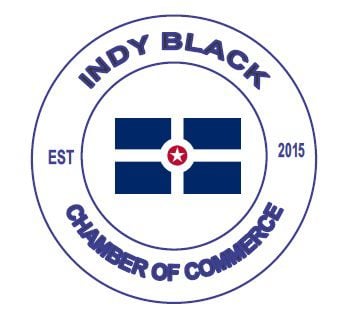Does pressure shape the man or reveal him? Think about your own personal experiences with those whom you believed you could count on in the heat of battle and adversity. How would you answer that question in view of their history of behavior with you in times of trouble? However you answer this question, it most certainly is a reflection, a revelation, a reveal on the state of your relationships. What has COVID-19 revealed on the state of relationship in our country? Well let’s attempt to evaluate it by some recent behaviors.
The COVID stimulus paycheck protection program was designed to keep small businesses with fewer than 500 employees afloat. However, many small business owners were systemically frozen out due to lack of a substantive relationship with their banks. In the first round there were 71 publicly traded companies that received funding from the Small Business Administration’s $349 billion PPP before the money ran out. In total these publicly traded companies received $300 million of emergency loans. The PPP application for self-employed individuals and independent contractors wasn’t even to become available until less than a week before the program ran out of money. Banks tended to provide loans to their existing customers with whom they had strong relationships.
When it came to minority–owned businesses, relationships or lack thereof had a significant impact. To get the PPP loans out quickly, banks prioritized the customers they knew best, which tended to be larger, more established businesses. “If you’re a business of color, you have not historically had that relationship with banks,” said Ashley Harrington, director of federal advocacy with the Center for Responsible Lending. “Also, because of that you’re not as aware of the program and how it works, and no one is hand-holding you through the process like they are the wealthier clients.”
COVID-19 is also shedding light on the social fabric of America. The recent protests surrounding the social distancing and stay–at–home restrictions, prove very illuminating in the areas of political and racial relations. Hundreds of protesters, some armed, recently gathered inside Michigan’s state capitol as state lawmakers debated the Democratic governor’s request to extend her emergency powers to combat coronavirus. Some of them carrying rifles, attempted to enter the floor of the legislative chamber, and were held back by a line of state police and capitol staff. The relationships that comprised the protesting groups at this “American Patriot Rally,” included militia group members carrying firearms, and people with pro-Trump signs, and one member said that the group was there as a “security detail” for the event organizers. What does that speak to the nature of the relationships allowing militia groups to bring guns into the state capitol building?
And now the most recent incident of another revelation of the current state of relationships, and possibly a premonition of things to come. A man shot while jogging in Georgia two months ago, and the shooters recently arrested. The two men who chased down the victim, identified by police as Brunswick residents, father and son, ages 64 and 34 respectively. The father, who is a former police officer, was the only source quoted in the police report. That led critics to suspect that his influence played a role in authorities’ decision not to bring charges. In addition, the prosecutor had to recuse himself due to the relationship between he and the former police officer. However, he left with a glowingly favorable letter on behalf of the shooters stating that their actions were legal according to Georgia law. Because of COVID-19 this case will be significantly delayed from going to court, with no arrests, and a grieving family with no visible means of redress.
As you read this information, what are your responses, thoughts, and emotions revealing about you? Are you experiencing empathy? Anger? Indifference? Can you relate to the differing challenges in each of these COVID-19 scenarios? Do the issues only matter when it affects those whom you feel a connection or relationship with? Do these scenarios align with the values you associate with being American? COVID-19 appears as if it will be here for a lengthy period, creating significant interruption in our lives. Can the country survive the continued deepening revelation of its relational disparities?
Dis–parity: the prefix, dis-, implies not; to do the opposite of. Parity: the state or condition of being equal, especially regarding status, income, or access to resources. We can collectively perceive our current condition as a crisis of survival, or we can consciously respond to it as an opportunity to reflect our values as a country. If we choose the latter, there will be one logistical issue. We have been practicing and implementing strategies of division over the last several years. Now that our country calls for unifying, we are struggling with ourselves and each other in trying to demonstrate it. In the words of Barry White, “practice what you preach.” It’s not too late, however, we can overcome our worst selves and choose the better.
In order to choose the better aspect of self we will need to do the following: 1) exercise honest self-reflection, 2) reevaluate our individual values and align them with our collective American values (the challenge here is the definition of who and what is America), and 3) create and implement a plan of action that demonstrates this alignment. To quote Albert Einstein, you cannot fix a problem with the same mind that was used to create it.
As a board member of the Indy Black Chamber of Commerce, we are addressing the goal of collective betterment with the implementation of our Mental Health Disparities Initiative. Please contact us for more information. Together let’s work to put the parity back in relationships.
George Middleton is a mental health counselor. He is author of three books, addressing the connection between mental health and the social impact of the race construct, regularly presenting workshops to service providers toward the goal of increased culturally relevant services.








